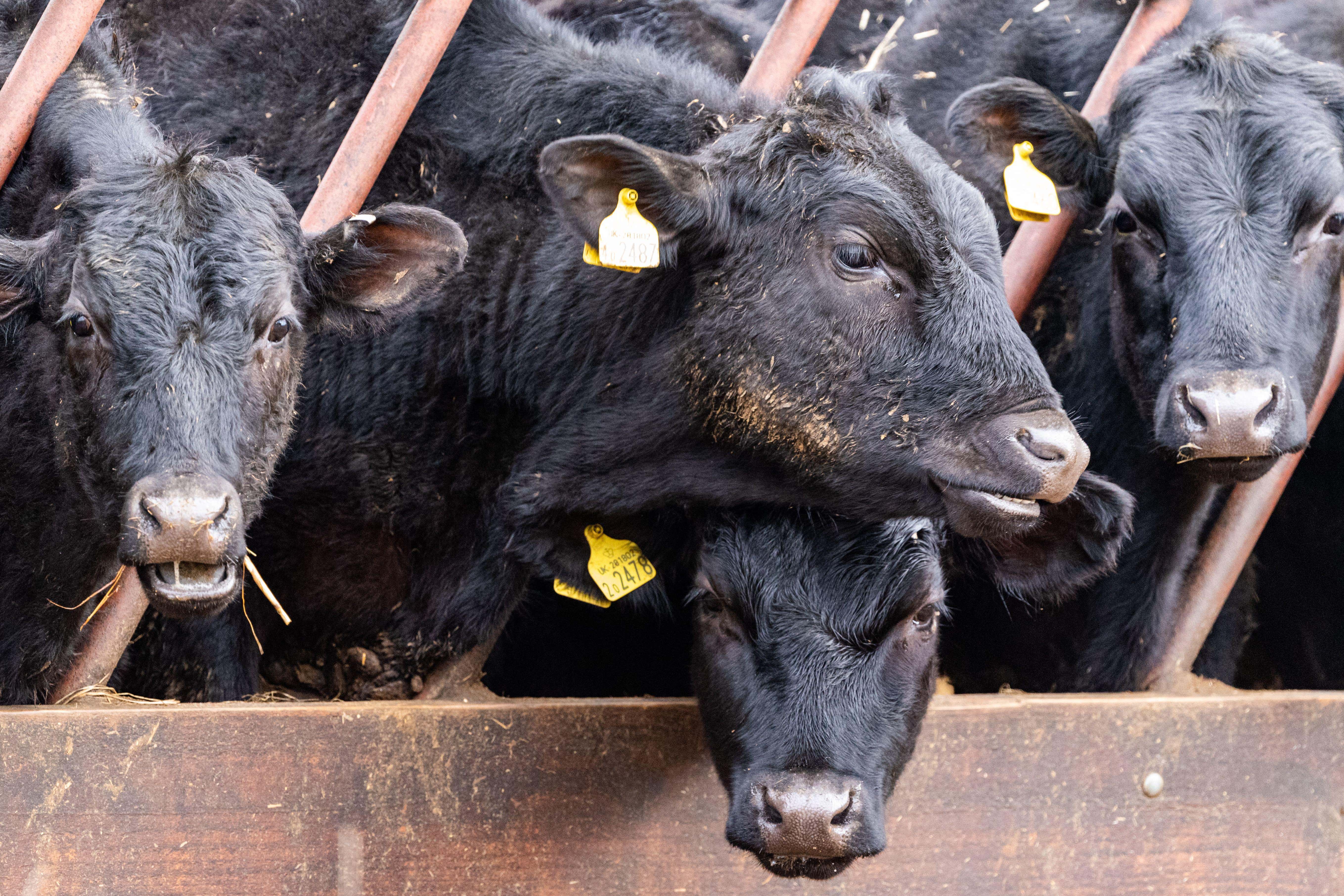Atypical BSE confirmed on Scottish farm as officials say no risk to human health
It has been described as a ‘isolated case’ in a cow in Dumfries and Galloway.

Your support helps us to tell the story
From reproductive rights to climate change to Big Tech, The Independent is on the ground when the story is developing. Whether it's investigating the financials of Elon Musk's pro-Trump PAC or producing our latest documentary, 'The A Word', which shines a light on the American women fighting for reproductive rights, we know how important it is to parse out the facts from the messaging.
At such a critical moment in US history, we need reporters on the ground. Your donation allows us to keep sending journalists to speak to both sides of the story.
The Independent is trusted by Americans across the entire political spectrum. And unlike many other quality news outlets, we choose not to lock Americans out of our reporting and analysis with paywalls. We believe quality journalism should be available to everyone, paid for by those who can afford it.
Your support makes all the difference.A case of atypical BSE, commonly known as mad cow disease, has been confirmed on a farm in southern Scotland.
Precautionary movement restrictions have been put in place after the single case of Bovine Spongiform Encephalopathy (BSE) was confirmed in a cow in Dumfries and Galloway.
Food Standards Scotland confirmed there is no risk to human health as a result of the “isolated case”.
Authorities said precautionary movement restrictions have been put in place at impacted premises, and they cover animals which have been in contact with the case.
Further investigation to identify the origin of the disease is ongoing, which the Scottish Government said is “standard procedure” and it described control measures as “stringent”.
The case was identified as a result of “routine yet intensive” BSE surveillance, and the animal did not enter the human food chain, the Scottish Government said.
Chief veterinary officer Sheila Voas said the atypical strain of BSE is not transmissible and “not connected to contaminated feed”.
The fast detection of this case is proof that our surveillance system is doing its job
Atypical BSE occurs “spontaneously” and is not linked to the human variant known as Creutzfeldt-Jakob disease (CJD).
The animal owners are working with authorities on next steps, officials said.
The Animal Plant and Health Agency is investigating the source of the disease and the animal’s cohorts, including offspring, have been traced and isolated, and will be destroyed.
Scottish agriculture minister Jim Fairlie said: “Following confirmation of a case of atypical BSE in Dumfries and Galloway, the Scottish Government and other agencies took swift and robust action to protect the agriculture sector.
“The fact we identified this isolated case so quickly is proof that our surveillance system for detecting this type of disease is working effectively.
“I want to thank the animal’s owner for their diligence. Their decisive action has allowed us to identify and isolate the case at speed, which has minimised its impact on the wider industry.”
Ms Voas said: “The fast detection of this case is proof that our surveillance system is doing its job.
“We are working closely with the Animal and Plant Health Agency and other partners to identify where the disease came from.
“I want to reassure both farmers and the public that this is an isolated case and of the atypical strain of BSE which is not transmissible and not connected to contaminated feed. If any farmers are concerned, I would urge them to seek veterinary advice.”
Ian McWatt, deputy chief executive of Food Standards Scotland, said: “There are strict controls in place to protect consumers from the risk of BSE.
“Consumers can be reassured that important protection measures remain in place and Food Standards Scotland official veterinarians and meat hygiene inspectors working in abattoirs will continue to ensure that safety of consumers remains a priority.
“We will continue to work closely with Scottish Government, other agencies and industry at this time.”
Millions of cattle were culled in the UK in the 1990s during a BSE epidemic.
Strict controls were introduced to protect consumers after BSE was linked to the fatal brain condition vCJD in humans.
A case of classical BSE was confirmed on a farm in Ayrshire in May this year, while the last case elsewhere in the UK was in Somerset in September 2021.
The last case of atypical BSE, which has different characteristics to classical BSE, was in Cornwall in March 2023, with a prior case in 2015.